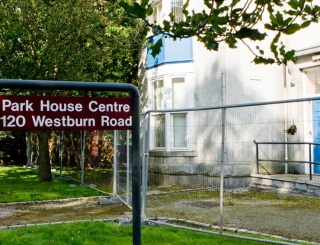Aberdeen Voice presents the third of a six-part tragedy by Jonathan Russell concerning the decimation of services for disabled people in Aberdeen – and asks what we can do to reverse the destruction.
A Comedy of Errors Meets MacBeth: Act I.
In last week’s article the work of the Community Placement Team was described and the challenges it faced outlined.
The Community Placement Team’s good practice had been highlighted in the Social Work Inspectorate Report as one of the few areas of good practice in Social Work Services within Aberdeen City Council.
What follows is the story of how managers, criticised in the Social Work Inspectorate Report (for amongst other things their lack of engagement with the front line) then went on to close the team down.
Two weeks after the publication of the Social Work Inspection Report the then management of Learning Disability Services informed me as Team Leader that the team was to have a budget of £200,000. Management had no idea what the actual budget allocated was: but this would have meant a halving of the team’s budget.
Staff had just received a re-grading as part of the Single Status agreement, so in terms of service delivery, the cuts were even potentially more than fifty percent.
Following the Council meeting to agree cuts to budgets, we met with the Head of Service. He informed us that a cut had been made in the Supported Employment budget, which he said included our team. I questioned whether they had actually cut the right budget, as this was not the Community Placement Team Budget. The Head of Service said he would investigate and reply to us.
As usual in such situations we received no reply. However what we ourselves discovered was they had cut (with council approval) a grant from the Department of Work and Pensions. This was not in their jurisdiction to cut, and could not possibly make any savings to the council.
The budget they cut was Workstep, which supported people with disabilities find and retain jobs in the open market. The Community Placement Team operated this service, but had no control of the budget. We had challenged management on a number of occasions that the budget received from the Department of Work and Pensions was not being fully utilized or used appropriately. The Workstep scheme supported clients in full time work – including those employed by Glencraft, the well-known social business in the city for people with visual and other disabilities.
In reality this budget cut made no savings, and the Community Placement Team at this stage was still intact.
We did however lose two excellent staff members who left for other work due to the obvious insecurity of the situation. The Head of Service also ended the partnership we had had with Cornerstone, telling us that Cornerstone were ‘rubbish’ (at a later stage he told us that Cornerstone were ‘much better’ than us). We lost from this process another excellent team member who moved – like many other staff in the council – to Aberdeenshire Council.
On top of this there had been a whole series of meetings of top officials within the council about disability services. These meetings did not involve front-line staff.
Clients with a physical disability were particularly affected by these cuts
What happened as a result was the closure of Aye Can – a social business aimed at those with more complex needs – and as the name suggests, re-cycling. Aye Can received much of its operating costs through the landfill levy at no cost to the council, but this was not taken into account when making the cut.
Inspire – with support from the Scottish Government and Sir Ian Wood – heralded that they would take over and improve on Aye Can.
The type of clients they were looking for were the more able ones. These would often have been clients who would have been able enough to be in more inclusive work settings in the community. Of course in the end, money having been spent on new premises and it being heralded as the way forward (with clients being paid proper wages) it never re-opened, and was lost as a service. More recently Garden Crafts, a similar social business, has been closed.
The next development was the introduction of Eligibility Criteria: which was a way for the council to say no to providing services to the community, and restricting what as a council it would provide.
Management said that this would mean that we could no longer provide any of our leisure activities, as they did not fit the criteria, and all leisure groups were closed down. Clients with a physical disability were particularly affected by these cuts, but so were those with a learning disability.
Supports to many in employment ended. Of course management would later deny having cut leisure services.
- In the coming weeks, further articles will be published, written by the ex-Team Leader of the then Community Placement Team, documenting what happened, and making suggestions for the future of services for people with disabilities in Aberdeen City. Read the fourth part of this six part tragedy, subtitled ‘A Comedy of Errors Meets MacBeth: Act II’ in Aberdeen Voice next week.

